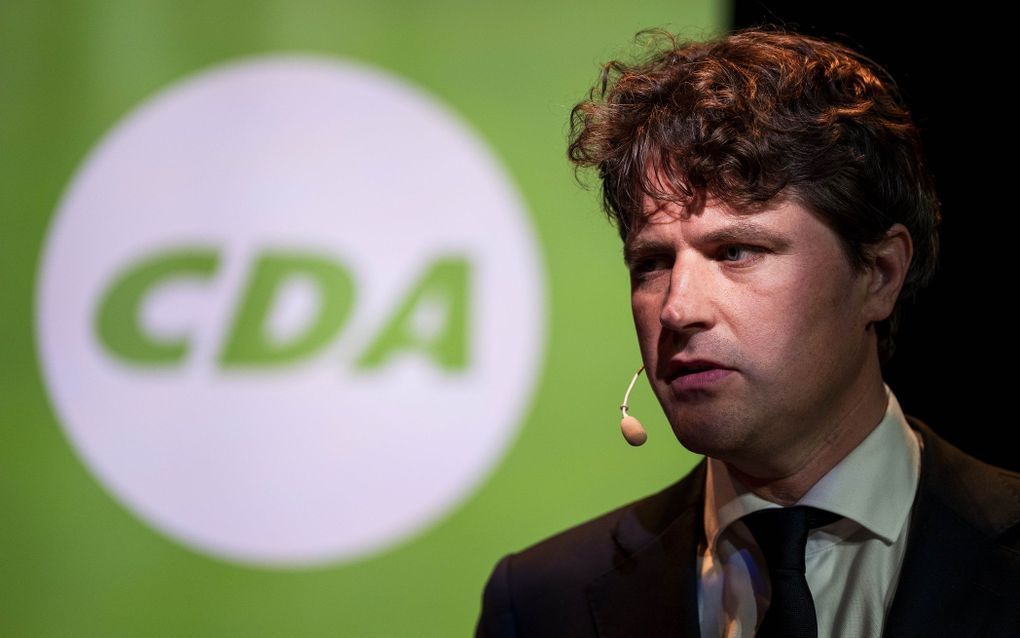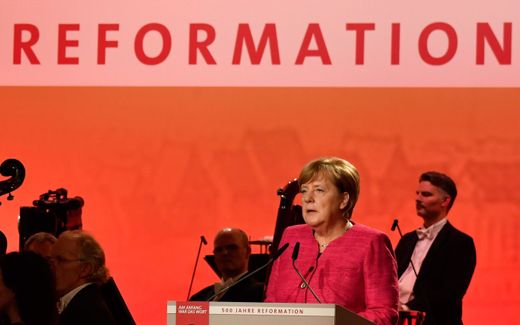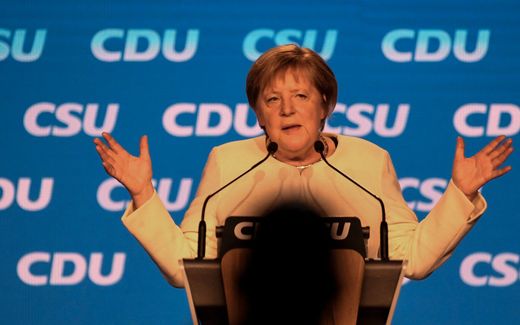Why the Dutch Christian Democrats struggle with the 'C' in party name

Christian Democratic candidate Henri Bontenbal during his speech. Photo ANP, Jeroen Jumelet
Western Europe
Ahead of the Dutch parliamentary elections late November, the once-mighty Christian Democrats of the Dutch CDA debate the ‘C’ in their name. Does it still stand for ‘Christian’?
While they currently man 14 of the 150 seats, the Christian Democrats are set to win between 4 and 6 in November. Whereas the party easily won at least 20 seats in previous elections, recent elections have ended in disappointments. To combat this, the new party leader, Henri Bontenbal, wants “the real CDA story to be heard again.”
But what is that story? This is a classic question within the Dutch Christian Democrats. In 2017, for example, party members debated how the party should relate to conservatism and populism. Some then argued for marketing the CDA more emphatically as social-conservative rather than Christian-social.
Image
One of them was former party chairman Pieter Heerma. He wrote: “Conservatives, like Christian Democrats, value (the lessons of) tradition, history and culture and also the shared appreciation for the social fabric. Besides this attitude of prudence, stability and caution, conservatives and Christian Democrats broadly share some fundamental objections to the spirit of the modern image of man and society.”
In contrast, his counterpart in the discussion, former MP Jan Schinkelshoek, argued that the political forefathers of the CDA broke with conservatism deliberately when they fought for freedom of education. He said the fight was part of a broad political programme of politicians whose primary aim was to form an emancipation movement of Christians. It’s not a conservative movement, in other words.
Heerma countered that conservatism, unlike liberalism or socialism, is not the guardian of an all-powerful government or an unbridled market. When the stability of society is at stake, right-minded conservatives are certainly willing to step in, according to Heerma, for instance, when it turns out that working is not sufficiently rewarding for the middle class due to too high a tax burden.
All in all, the debate about whether ‘C’ stood for conservative or Christian-social was quite complex at the time.
Division
Now, it is no different. After the current party leader, Bontenbal, signalled his willingness to get back to “the real CDA story” while quoting a CDA conservative, former Minister of Justice Ferd Grapperhaus warned him not to be too Christian. Going off Bontenbal’s narrative, this warning does not seem necessary, but it shows the division within the party.
Still, the impact of this discussion should not be overestimated. The party’s has never formally accepted the Bible as the norm for political and social life or for its members to unite from the Christian faith. The party’s existing manifesto is also clear about this, which states that the party sees the Gospel primarily as “a perspective.”
So, the current discussion may have consequences here and there for the profile and course of the CDA, but there will be no radical turnaround.
Germany
The discussion around the ‘C’ in Christian Democratic parties is not new. There was a similar discussion in Germany recently. Last year, some critical voices argued that the party should emphasise the C in its name more. At the same time, 35 per cent of the Germans would like to see the C removed from the CDU.
Within the party, however, the ‘C’ is appreciated. In a survey among 66,000 participants, most value the party’s orientation towards Christian values and convictions. Party leader Friedrich Merz said in April that he finds it remarkable that three-quarters of the members consider it important that the C not only stay in the name of the party but also “that we continue to use it as a guide.”
Related Articles






